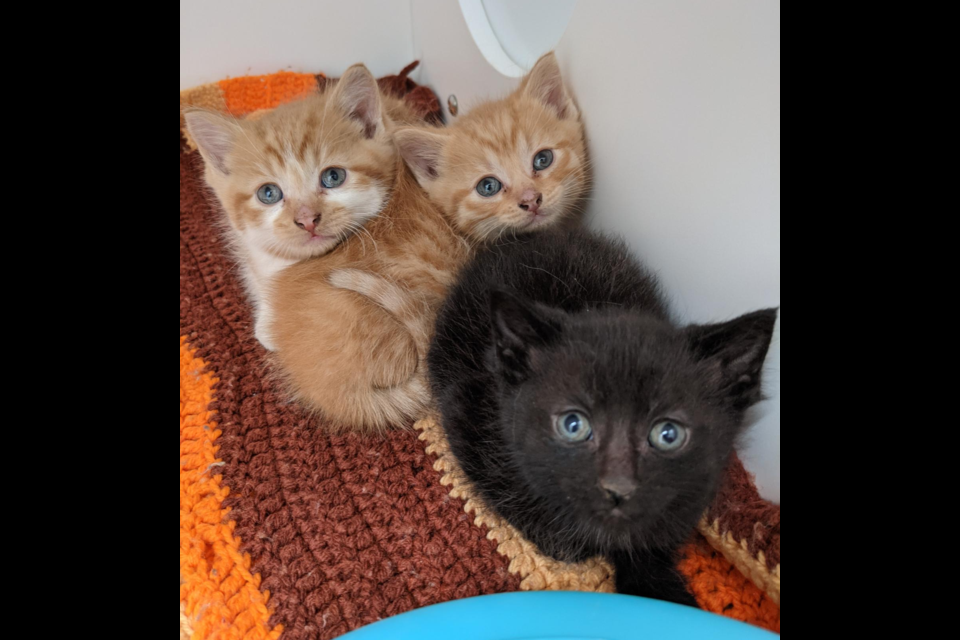A simple country life is what the Guelph Humane Society is hoping to give some barn cats, but they need local farmers' help to make it happen.
Recently, the GHS welcomed three litters of kittens and one barn cat into their facility.
Found on a farm in Wellington County, Melissa Stolz, intake and behavioural coordinator at GHS, says the mothers for the two other litters have not yet been found.
“We got ten kittens yesterday and there are more litters on the farm,” says Stolz about the cats, “So we’ll be working gradually to get the remaining in, as appropriate, once they hit that age where they can be safely separated from mom.”
Due to concerns about the barn cat's well-being being at the shelter, the GHS is reaching out to local farms to help give these felines a place to stay.
The sooner feral cats can be placed the better, says Stolz.
“We want to get them in and out as quickly as possible,” she says, “Because especially for ferals, it’s quite a cost to their welfare to be housed in a cage in such close proximity to humans, it’s out of their comfort zone.”
Currently, there are only five farms who are working with the GHS to keep barn cats and they need more. Stolz cites a lack of awareness of their work with barn cats could be why their list is small.
“We struggle to keep enough farm owners on that active list of people who we can call and say... Are you ready to take one or two barn cats? They’re ready. They’re fixed, they’re microchipped and are good to go,” she says.
“We really could use a lot more barns kind-of on standby if you will.”
Through a GHS program called the Working Cat Adoption Program, all cats are fixed, or neutered, and microchipped before being placed on a farm. These cats are also inspected for diseases prior to their placements.
“They can live the life they’re most comfortable with, but fixed so they’re not contributing to that overpopulation.” says Stolz.
She adds it’s also a free program for farmers.
“It’s more important that we get the cats out then bringing in the dollars,” she says.
Besides helping a creature in need, Stolz points out there are many benefits for farmers in keeping a barn cat on your property, including controlling rodent populations and keeping out other feral cats.
When keeping a barn cat on a farm for hunting rodents, Stolz explains they should still have access to food and clean water.
“You don’t need to withhold that food for them to continue to hunt rodents.” she says.
For the kittens, the GHS is planning to socialize them so they can go on to be adopted into residential homes. Stolz explains a socialization period for a cat is two to nine weeks, and can become used to people through positive interactions, food and play.
“They can very easily turn around into wonderfully social kittens and grow up into awesome, social cats,” she said.
To learn more about their work with barn cats, go to guelphhumane.ca.
